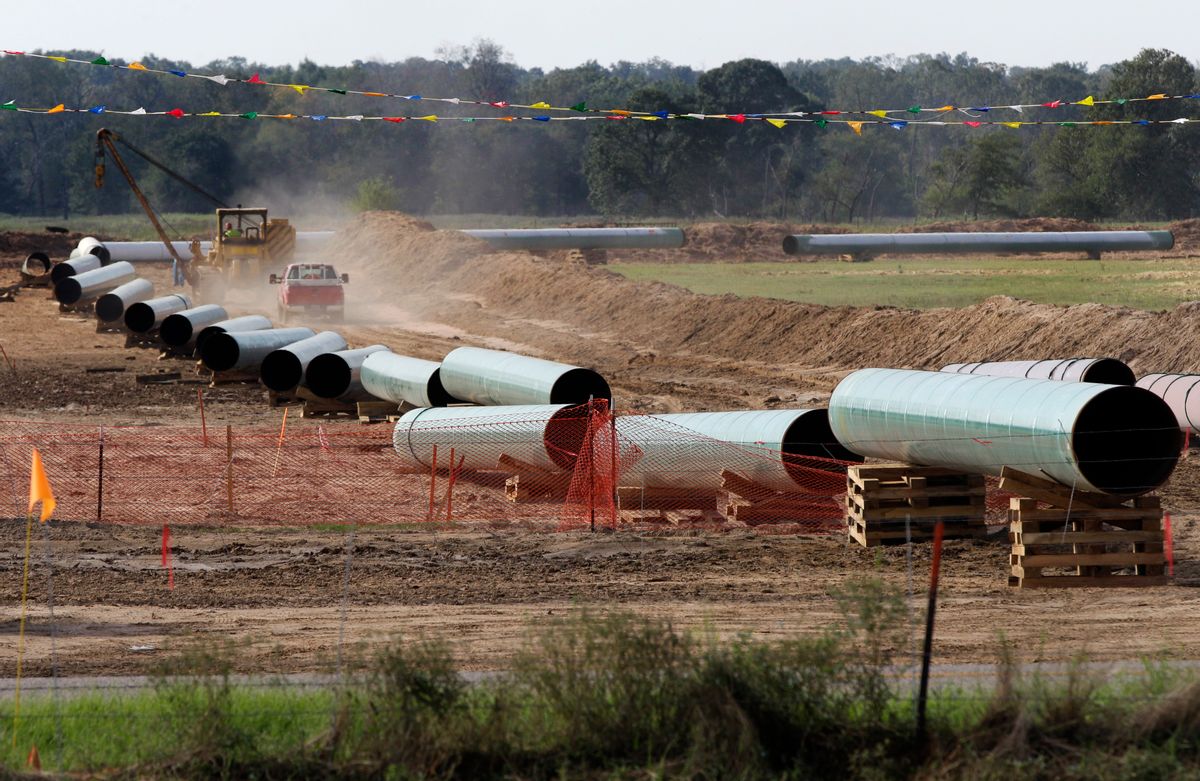On Friday, the U.S. House of Representatives voted 252-to-61 in favor of a bill instructing the government to pursue construction on the Keystone XL pipeline. The vote sends the measure to the Senate floor, where a vote will be held on Tuesday. If it passes in the Senate, the bill makes its way to President Obama to sign or veto.
The bill's passage marks the ninth time Keystone legislation has made it through the House.
The New York Times' Coral Davenport reports:
The House and Senate votes are chiefly intended to be political maneuvers by Republican and Democratic party leaders in the drawn-out battle for a Louisiana Senate seat. The incumbent, Senator Mary L. Landrieu, a Democrat, faces a runoff on Dec. 6 against her Republican challenger, Representative Bill Cassidy.
Both have campaigned aggressively on their support for Louisiana's oil industry, including impassioned pledges to force Mr. Obama to approve the pipeline. By calling for their party leaders to hold the Keystone votes, both hope to invigorate the homestretch of their campaigns.
"This will create other economic activity," Cassidy said of the pipeline. "This will ripple out through the economy."
The actual pipeline, which would run from Nebraska into Canada, has become an object of partisanship, with a representative's energy policy largely relying on his or her views toward it. In press conference soon after he was elected, incoming Senate majority leader Mitch McConnell said, "When you say energy these days, people think of the Keystone pipeline, but that's only part of it."
Obama faces pressure from environmental groups that oppose the pipeline's construction, citing the enormous negative impact it would have on the climate.
"Understand what this project is: It is providing the ability of Canada to pump their oil, send it through our land, down to the Gulf, where it will be sold everywhere else. It doesn't have an impact on U.S. gas prices," said Obama in response to today's vote. "If my Republican friends really want to focus on what's good for the American people in terms of job creation and lower energy costs, we should be engaging in a conversation about what we are doing to produce even more homegrown energy. I'm happy to have that conversation."



Shares